OnePlus recently launched its latest flagships, the OnePlus 9 series of phones. The series brings with itself three new devices, the OnePlus 9 (review), OnePlus 9 Pro (review) and OnePlus 9R. We’ve already spent considerable time with the first two and have also published full reviews for them. And now, we have with us the OnePlus 9R, the company’s new entry flagship that competes in the highly competitive under Rs 40,000 segment of the market.
We’ve spent a few days with the device, during which we’ve tested it under varying conditions, ran it through a battery of tests, clicked a ton of pictures, and also spent time playing games on it. Now, we’ll use all the collected data to give you a better understanding of the device and figure out if it’s worth your money.
OnePlus 9R: Performance Review
To start with, let’s talk about the general performance of the OnePlus 9R. As is the case with all OnePlus flagship phones, there’s very little to fault the OnePlus 9R when it comes to the performance of the device. And it’s mostly because of the core hardware it packs under the hood.
The biggest talking point here is the OnePlus 9R’s use of the powerful Snapdragon 870 SoC. This chip is based on the same architecture as the Snapdragon 865 Plus and as such is fabricated using the same TSMC 7nm process used in its making. All the heavy lifting in the CPU department is done by the Qualcomm Kyro 585 CPU which features a prime core designed to clock a peak speed of up to 3.2GHz. With this chip, Qualcomm promises increased performance across the board for superior gameplay and Snapdragon Elite Gaming Experience. It also enables support for 5G. For graphics, the chipset relies on the Adreno 650 GPU.
OnePlus and Qualcomm’s claims about the performance of the device largely hold true, with the device handling anything and everything you throw at it. While it may not have had similar support of the marketing machinery that the Snapdragon 888 received, this chip does pretty much what its sibling can do — at least in real-world usage scenarios.
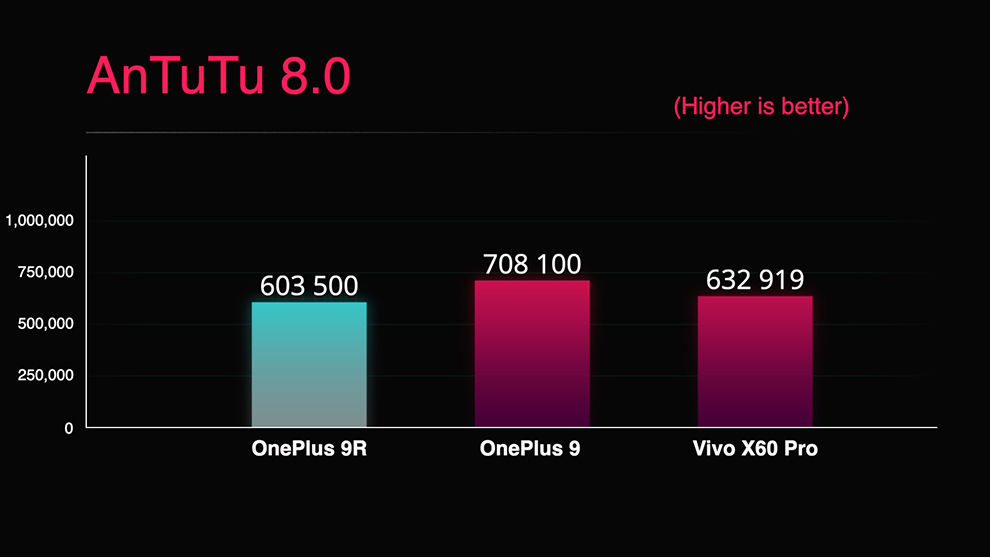
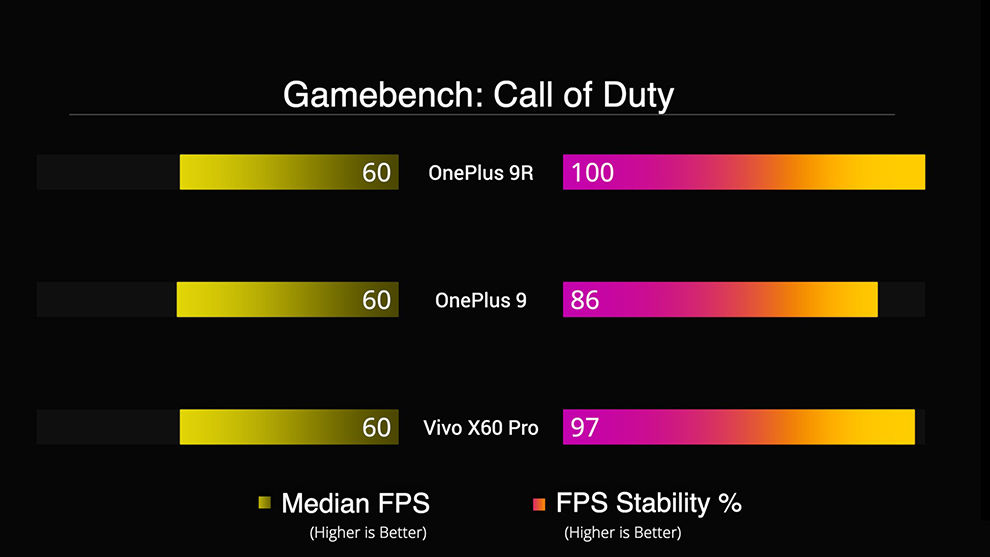
This was especially true for tasks of daily use and even gaming, where the device powered through all that we threw at it without batting an eye. Games ran without any hitches and browsing content on the device or switching through apps was a breeze. Multitasking was again, not an issue on the OnePlus 9R. This was also backed up by the data we received when we tested the real-world gaming performance of the device using Gamebench. Unsurprisingly, the device ran both Call of Duty Mobile and Asphalt 9 Legends at maxed-out settings, without any frame drops or stutters. The results for both games showed a median FPS of 60 frames at the stability of 100 per cent. Now that’s impressive. Especially considering the fact that neither the OnePlus 9 nor the competing Vivo X60 managed to achieve such high stability for frame rates.
The only place that the OnePlus 9R lagged behind other devices — only a handful at that — in performance was when it came to synthetic benchmarks. The device scored a total of 603500 points on AnTuTu that only trails the 708100 points scored by the Snapdragon 888 totting OnePlus 9. Interestingly, it was also slightly lower than the X60 Pro which also comes with the same Snapdragon 870 SoC, leading us to believe that there’s still scope for performance improvement in the OnePlus 9R with future software upgrades.
We also got similar results while testing it using 3DMark’s Wild Life test. This particular benchmark tests the GPU of the device to simulate the stress faced by it during gaming sessions. Here we found the OnePlus 9R to be closer to the OnePlus 9 and Vivo X60 Pro in terms of scores as these devices scored a total of 5682 and 4206 points, respectively. In comparison, the OnePlus 9 scored 4170 points, which again, is pretty good.
Overall, we’re happy to report the OnePlus 9R shines in both gaming and overall performance. While it does not beat competing devices when it comes to synthetic benchmarks, it manages to do well in real-world performance — and that probably is what we should be focusing on here.
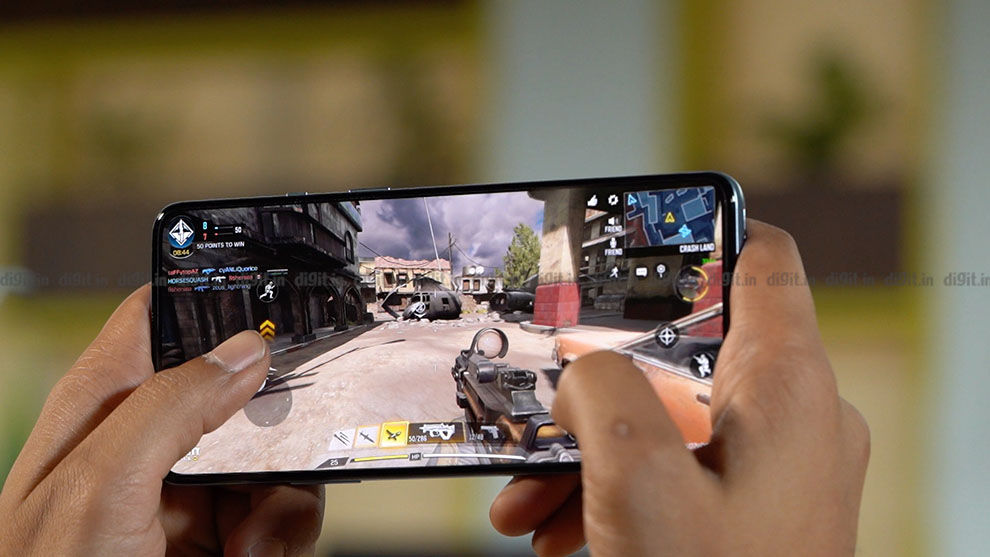
OnePlus 9R: Design Review
The OnePlus 9R is an entry-level flagship, one that can easily pass off for a premium device plying its trade in a higher segment than its price point would suggest. This is in part because of the premium design language of the phone that sees the company majorly using glass and metal for the design of the device.
The back of the OnePlus 9R uses a glass sheet that has the OnePlus logo plastered in the middle and a well-designed vertically placed camera set-up towards the upper right-hand corner of the back panel. This camera module houses four lenses that have been sat next to a dual flash mechanism. The camera module is one of the most interesting elements of the design of the device, with two big circular cutouts and two smaller ones beneath the main ones dominating this slightly protruded set-up.
Apart from this, the whole back has been left clean with OnePlus trying to keep things very class and simple. The phone also uses a sheet of toughened Gorilla Glass on the front and the back for protection, which also helps provide the device a smooth finish when you hold it in the hand. The back panel also features 3D curves to improve the ergonomics and in-hand feel of the device.
OnePlus claims the phone is designed for gamers, with these rounded corners built for making the device easy to hold during long gaming sessions. But even if you’re not looking to game on the device, the premium nature of the phone and the use of plush materials ensure that the OnePlus 9R will not disappoint. The OnePlus 9R comes in two colourways, Lake Blue and Carbon Black. We got the former for review and looking closely at it, you can notice micro-patterns on it which give it a frosted glass look. Although, the glossy shine of the panel gives away its reality.
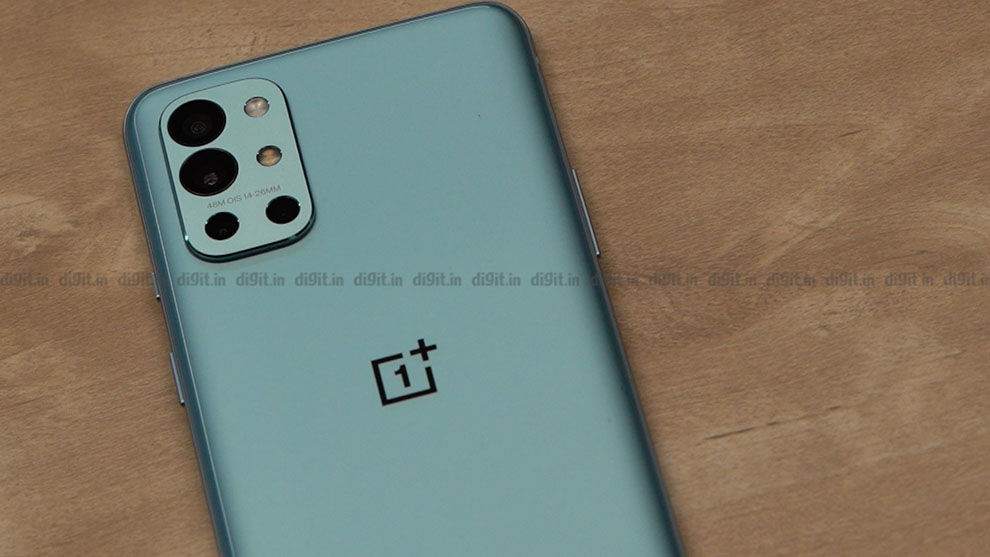
OnePlus 9R review: Display Review
As is the case with the other two OnePlus 9 series phones, the display is definitely an area of focus for the OnePlus 9R. The device brings with itself a 6.55-inch FHD+ Fluid AMOLED display that can be set to either refresh at 60 or 120Hz. Much like the OnePlus 9, this display is also non-curved in nature, and can pretty bright. The company claims that the OnePlus 9’s display can go up to 1100nits at peak — when consuming HDR content. While this is only for a specific area of the panel at a particular time, we found during our testing that the display can output a steady 713nits of peak brightness across the panel on a sustained basis. As for the minimum luminance, the OnePlus 9R can drop down to as low as 7nits.
But that’s just the basics of it. For deeper insights about the display of the OnePlus 9R, we tested it using Calman Ultimate paired with the Spectracal C6 HDR2000 colourimeter. This in-depth testing gave us important insights about the display, including the colour accuracy and coverage of colour gamut across different colour profiles.
The OnePlus 9 offers five colour profiles of which three are hidden inside the advanced setting and are tuned to specific colour spaces. The first two, the Natural and Vivid are tuned to not promote colour accuracy but visual experiences as defined by the company. The other three are the sRGB, Display-P3 and AMOLED Wide Gamut — all profiles which conform to pre-defined industry standards.
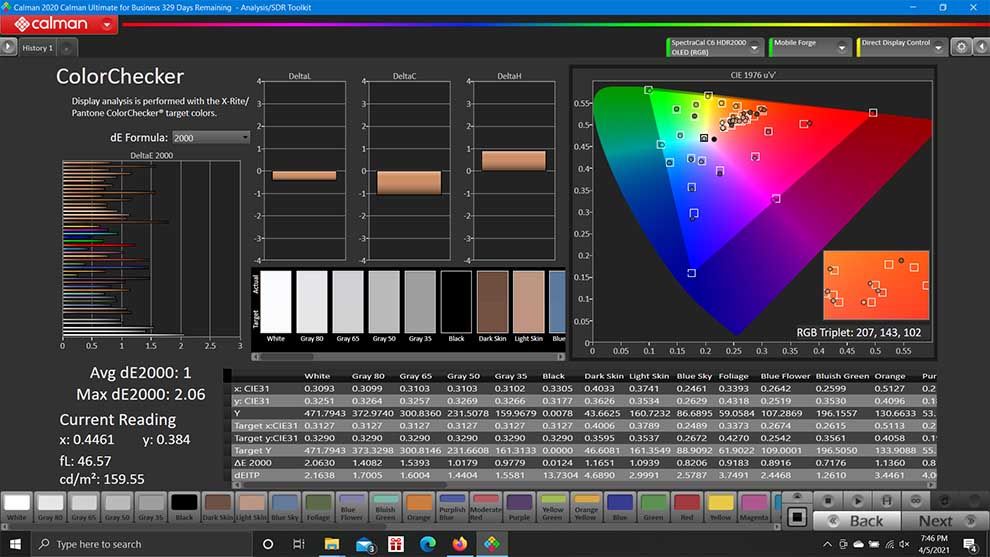
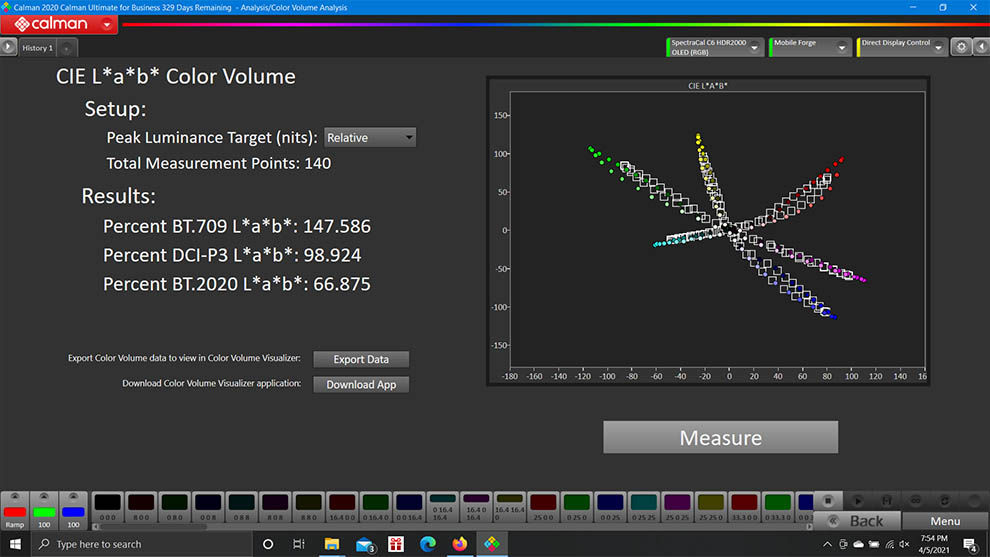
When set to the sRGB colour profile, the display threw up a very good Avg DeltaE error of 0.99 and a maximum DeltaE error of 2.13. As for the coverage of the colour space, the Colour Volume test revealed the phone’s panel covers around 99.208 per cent of the BT.709 colour space in the sRGB space. So if it’s colour accuracy and not saturated colours that you’re looking for, then you can simply switch your OnePlus 9R to the sRGB colour profile and be rest assured you’d be getting accurate results.
For watching HDR content, your best bet is to switch the display to the Display P3 profile. In this, the colours are slightly more saturated, however, the test results for colour accuracy still remained well within acceptable levels. Proof of this are readings from ColorChecker which showed the display throwing up Avg DeltaE error of 1 and a maximum DeltaE error of 2.06. As for coverage of the colour space, in this profile, the panel managed a high gamut coverage of 98.924 per cent of the DCI-P3 colour space.
Away from these test results, the OnePlus 9R’s panel proves to be a real delight to watch movies and play games on. It’s vibrant, crisp and ultra-smooth because of its fast refresh rate. There’s also support for HDR10+ which can best be leveraged by switching to the Display P3 colour profile.

OnePlus 9R: Camera Review
In terms of cameras, the OnePlus 9R does not bring any new features that really set it apart, and nor does it offer hardware that we haven’t seen before. In fact, it comes with the same primary sensor — a 48MP Sony IMX 586 — that we saw previously on the OnePlus 8T (review) and the OnePlus 8 (review) series as well.
As a consequence of this, the performance of the primary lens is also very much in line with what we’ve seen on past OnePlus flagships, which to be honest, is nothing to complain about. Using this lens, the phone can capture some really nice daytime shots with well-balanced colours. The lens also captures a good amount of detail to ensure there is little loss even if you zoom or crop an image. The captured images are crisp and offer good sharpness, including the edges. The dynamic range of the captured pictures is good, even if not at par with the results received from the bigger sensors of the OnePlus 9 and OnePlus 9 Pro.
The OnePlus 9R also brings with it an ultra-wide camera. This is a 16MP Sony IMX481 sensor with an f/2.2 aperture. The ultra-wide sensor promises sweeping views and scenic vistas with its 123-degree ultra-wide-angle lens. For the most part, this lens does impress with its performance as it clicks usable ultra-wide shots that capture more of the frame at the touch of a single button.
The resultant images do bring a decent amount of detail, but they are nowhere close to the results of the ultra-wide lens of the other two OnePlus 9 series phones, and also lag the results of the primary lens in both levels of detail and colour accuracy.
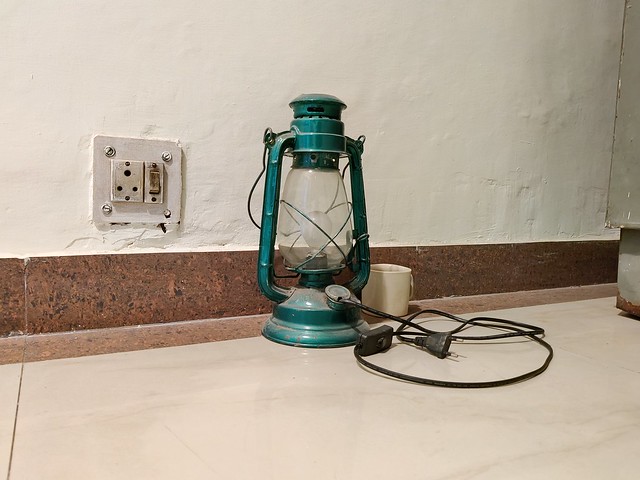
Apart from this, the OnePlus 9R also features a more than usable 5-megapixel macro lens and a 2-megapixel monochrome lens. The former will definitely be of great interest to a lot of users as it outputs good results.
The low light performance of the phone’s cameras is also good. Both the primary and ultra-wide lens are more than usable in low-light situations. The performance of the macro camera suffers greatly when not fed with enough light. But for the first two, low light images come out good, which can further be improved by using the AI-based Nightscape Mode that more than just brighten the frame by increasing the exposure but actually appears to do a lot of behind the scenes work to improve the overall detailing of these shots.
We also have a 16-megapixel front camera on the device. This lens captures accurate skin tones and facial details and if you’re looking for something to click selfies and make video calls from, then this one should definitely be good enough.
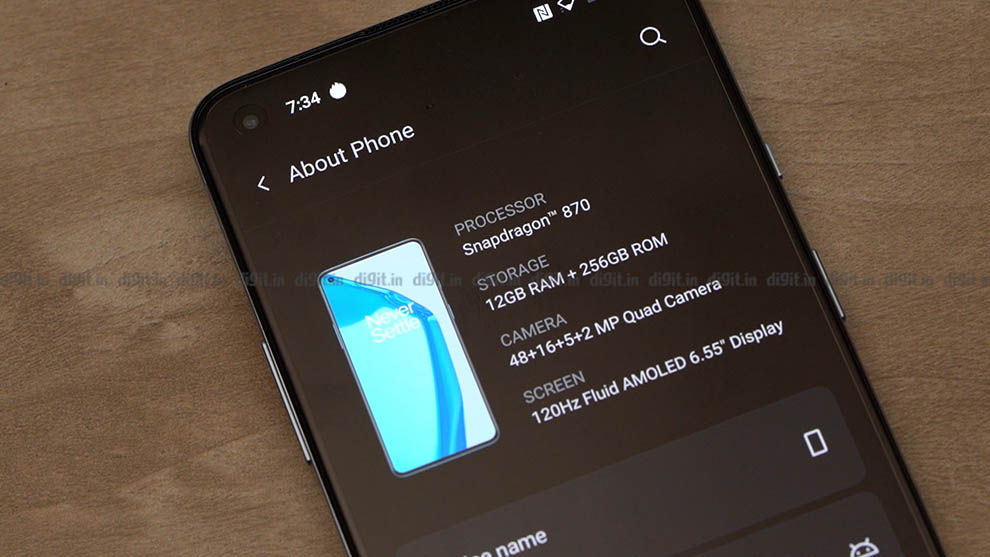
OnePlus 9R: Battery Review
The OnePlus 9R is definitely a winner in the battery department. The phone comes with a 4,500mAh battery pack which also comes with the promise of fast charging. But before the phone’s battery can be charged, the phone’s UI optimisations ensure that there little battery drain when you are doing simple tasks like texting, browsing Twitter, or even video calling.
Even with heavy usage including gaming, streaming content on Netflix, and clicking a lot of photos, the OnePlus 9R still gets you through the day. And when the phone finally starts running out of charge, you can simply plug it in the provided 65W Warp Charger to take it from 1-58% in 15 minutes and a full charge in about 45 minutes. While this is not the first time we’ve seen similar charging tech on a OnePlus phone, it still is quite impressive and honestly a huge convenience.
OnePlus 9R Review: Why should you buy it?
Starting at Rs 39,999, the OnePlus 9R is the new entry-level flagship from the company that looks to take the battle to the crucial sub-Rs 40k segment of the market. And, it does so really well. The phone has plenty to like about it, including its fast 120Hz display, the above par cameras and also its premium design language.
OnePlus 9R Review: Conclusion
The only real…
Fuente: Digit
